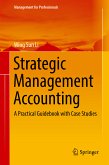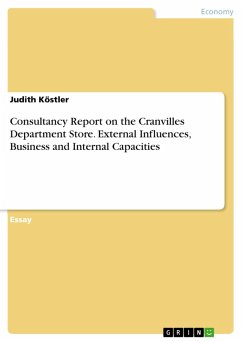Bachelor Thesis from the year 2014 in the subject Business economics - Operations Research, grade: 0,737, EBS European Business School gGmbH, language: English, abstract: In consideration of the opposing opinions on the impact of management consultants and in light of prior investigations, the following research question emerges in this thesis : How can the value-add that is the performance of strategy consultants be evaluated? In order to answers this research question, the following sub-questions will be addressed as well: Firstly, which roles and activities fulfil consultants and clients during a consulting project? Secondly, which difficulties arise in attempting to evaluate the performance of management consultants? Thirdly, what are the motives and practical relevance from the perspective of the consultants and the clients to evaluate the performance of consulting services? In this context, management consultants are understood as external consultants of major strategy consulting firms aiming to provide solutions to strategic problems. Additionally, the main attention will be on models to evaluate their performance as opposed to others, which focus on determining drivers for consulting project success (e.g. Appelbaum, 2004). Hence, the paper compares scientific approaches, which are originated from sound theoretical investigations and practitioners' approaches that are derived from evaluation practice. The aim of this paper, then, is basically threefold: Firstly, provide an understanding for the complexity and heterogeneity of management consulting. Secondly, sketch the most important aspects and difficulties, which arise in the context of performance evaluation of consultants. Since the aim is not to develop a comprehensive model, which can be used to economically evaluate the performance of management consultants, the thesis thirdly aims to rather fill the void, which has been opened since the last major review of performance evaluation models for consulting services a decade ago (e.g. Ernst, 2002; Sangüesa Sánchez, 2003) by presenting an updated review on the major models that have been established since the start of academic research into this area in the 1970s.
Dieser Download kann aus rechtlichen Gründen nur mit Rechnungsadresse in A, B, BG, CY, CZ, D, DK, EW, E, FIN, F, GR, HR, H, IRL, I, LT, L, LR, M, NL, PL, P, R, S, SLO, SK ausgeliefert werden.









